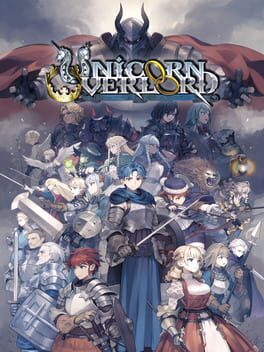nex3
BACKER
I care about art more than I care about games, but games are art too so it all works out
Badges

GOTY '23
Participated in the 2023 Game of the Year Event

Donor
Liked 50+ reviews / lists

GOTY '22
Participated in the 2022 Game of the Year Event

Treasured
Gained 750+ total review likes

Shreked
Found the secret ogre page

On Schedule
Journaled games once a day for a week straight

Famous
Gained 100+ followers

Gone Gold
Received 5+ likes on a review while featured on the front page

Adored
Gained 300+ total review likes

Best Friends
Become mutual friends with at least 3 others

GOTY '21
Participated in the 2021 Game of the Year Event

4 Years of Service
Being part of the Backloggd community for 4 years

Trend Setter
Gained 50+ followers

Loved
Gained 100+ total review likes

Well Written
Gained 10+ likes on a single review

Epic Gamer
Played 1000+ games

Elite Gamer
Played 500+ games

Gamer
Played 250+ games

N00b
Played 100+ games

Popular
Gained 15+ followers

Noticed
Gained 3+ followers

Liked
Gained 10+ total review likes
1297
Total Games Played
018
Played in 2024
000
Games Backloggd
Recently Played See More
Recently Reviewed See More
When I first tried Hollow Knight five years ago, I bounced off it hard. I had not yet known the sweet embrace of Dark Souls. Although I did enjoy a platformer and the occasional metroidvania, the rhythm of this game's combat did not match the beat of my heart, nor did its by-the-book early traversal quicken my pulse. I didn't make it deep enough to even begin to meet the dramatis personae. I just set it down intending never to pick it back up.
That same heart, in the intervening years, grew to love From Software's oeuvre. This love has much to do with why I did eventually return, although not perhaps for the reasons you'd expect. Although Hollow Knight borrows some formal aspects from those games, most notably the bench/shade mechanic and a preoccupation with boss fights, it is on the whole more different than it is similar. And every time I've tried to dip my toe into a game because it's "like Dark Souls", I've walked away shaking my head and mourning designers' inability to learn the right lessons. That was never going to be my reason for playing this.
To understand the true reason, you must first understand what happened after FromSoft stole my heart. I played through all the games in reverse, from Sekiro to Demon's Souls, then wept for there were no more worlds to conquer. But to my friends, these paths were as yet untrodden. I would tune into their streams in vicarious delight as they first saw sights that I now knew so well. And on rare and precious occasion, a friend would ask me to take their hand and guide them through a game entire, the voice in their ear every step of the way.
I joined the journey of one friend in particular through Lordran, from believing these games were fundamentally Too Hard for them to beating the DLC bosses so fast it put the sickest Os in the group chat to shame. Playing together as learner and guide made us better friends and gave them a new perspective on their own skill broader than any video game. At the end, they told me, "I want to teach you to love Hollow Knight like you taught me to love Dark Souls". Now you understand: I had to return to this game.
So I picked Hollow Knight back up, started a new save, and began again. To be sure, after half a decade of honing my action game skills, I was far more proficient than I was before. Although the core mechanics are vastly different than a FromSoft 3D slash-and-roll, my skills transferred plenty well. I knocked out bosses quickly enough to leave Sable as dumbstruck as they had left me. But the real difference, the reason I'm wholeheartedly giving this game five stars now when I didn't even care to finish it before, was Sable. (And Sam! Another friend who was not as omnipresent, but who popped in frequently enough to substantially shape my impression of the game as well.)
Their infectious affection unlocked for me everything there is to love about Hollow Knight. With their encouragement I slipped quickly through the early game and found that the meat of it was indeed good. I could appreciate in fullness the personality of the various characters met through the game, their foibles and their tragedies. I could enjoy the environment design, have fun playing around with various builds, and really sink my teeth into bosses.
The boss design, once it gets challenging, is fascinating. Each boss has a relatively small set of moves, and the effective answers to them are highly technical combinations of movement and attacks. The emphasis is less on finding an opening and more on learning to sneak in hits while you evade. On the other hand, because you rebuild "soul" for healing while hitting the boss, in principle if you can find a hit/heal loop however inefficient you can just run it indefinitely even with imperfect play. The bosses then have to be designed around this, giving increasingly few chances to heal at all as they get more difficult but also taking quite few hits relative to, say, a Dark Souls boss.
Perhaps the place where Hollow Knight draws most from From's playbook is its plot: intricate and mournful but always a background presence, relegated to fragments of text with vague allusions and the occasional brief onscreen interaction. It must be easy to beat this game without understanding it at all, so once again I'm grateful to the guidance I had—just enough to draw my attention to key moments and answer the occasional question, never so much to shatter my nascent understanding with too explicit an explanation.
The story works so well precisely because it's understated. It's a collage of moods of which you see fragments, which the game asks you to connect yourself, to see the tendrils intertwine between what it has to say about parents and childhood, about duty and choice, about love and emptiness. It's a story in which can reflect much about what the player brings to it while still holding its own themes strong, not simply conforming to the reader's views. It's beautiful in that way.
I do have my complaints about Hollow Knight. I actually have kind of a lot of complaints. It's very clearly Team Cherry's freshman effort, full of little design flaws—why does it fire a spell if you press B to leave the menu and leave it down a little too long? why do you have to juggle charm notches just to see where you are on the map? why can't you see the world map in the fast travel screen?—that routinely drive me up a wall. But they're all small, and the ones that aren't fixable with mods are easy enough to simply ignore. And even for this, having a friend around helped. I am, after all, a huge believer in the healing power of bitching about stuff that annoys you.
Sable, since I know you'll read this: You did it. You taught me to love Hollow Knight. Thanks to you, I now have strong opinions about bug ghosts and spider/bee cross-species adoption. Dung beetles make me sad now and it's all your fault. I am changed irrevocably. Thank you.
I do have a few design quibbles here. Balatro could use something like Slay the Spire's Neow to discourage the player from rerolling until they get a good reward for skipping the first blind. At higher difficulties, the variance also starts to get very pointed, with the difference between opening a particular planet or getting a decent economy joker or not making or breaking a run. But these are minor complaints—the game is fantastic, and I can see myself sinking plenty more time into it piecemeal from now on.




